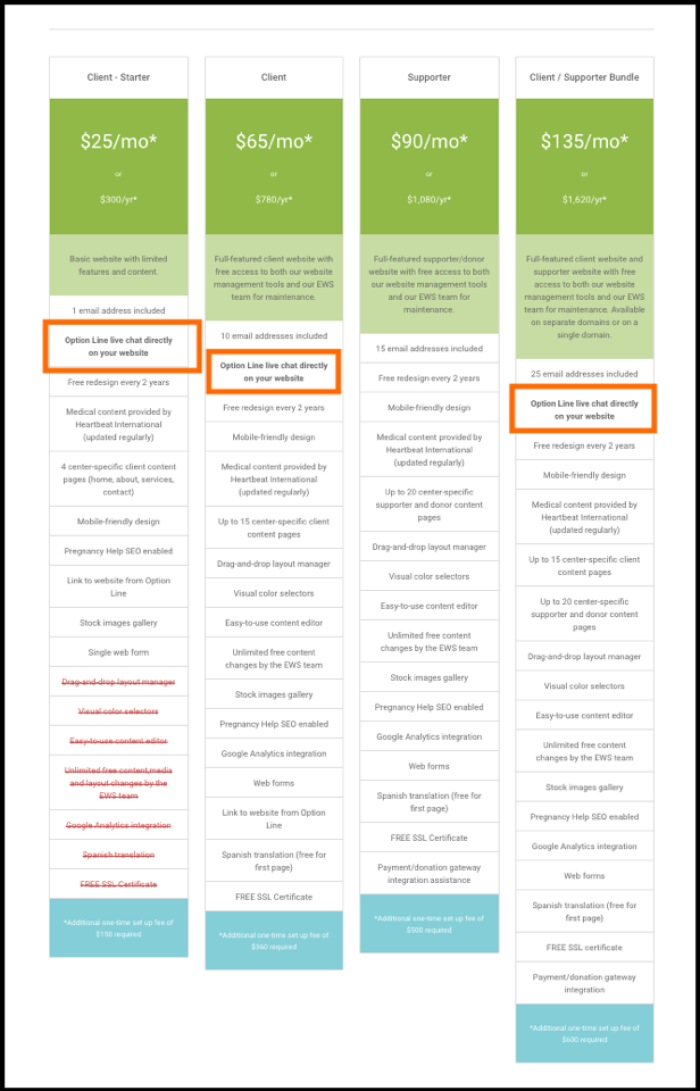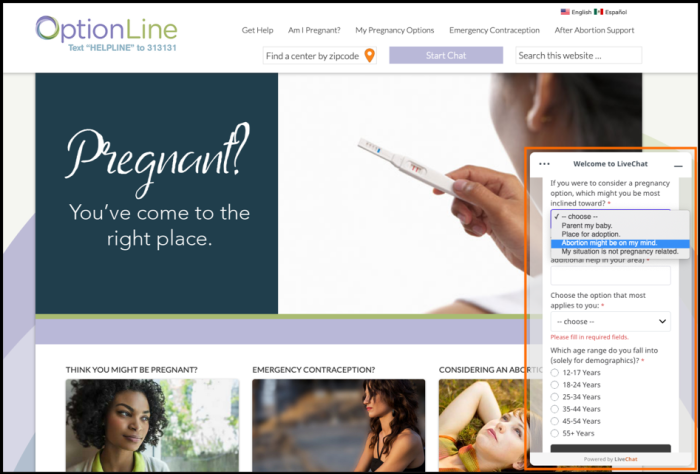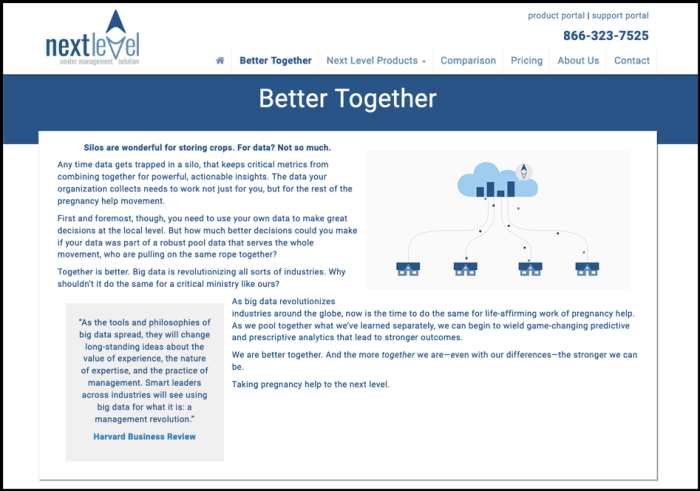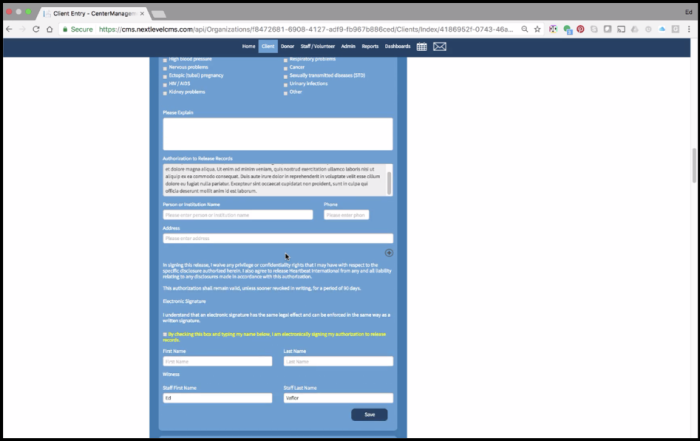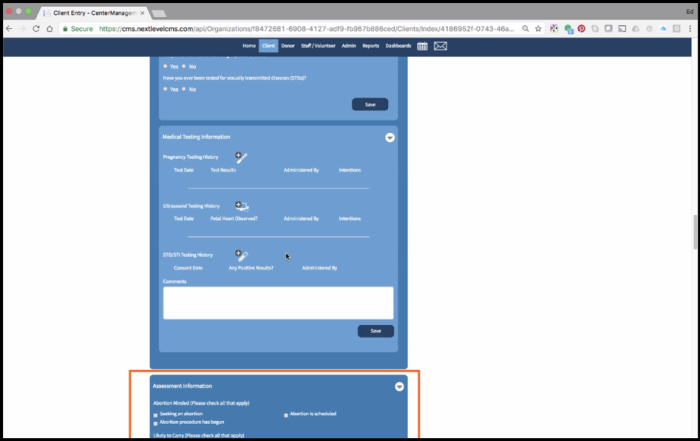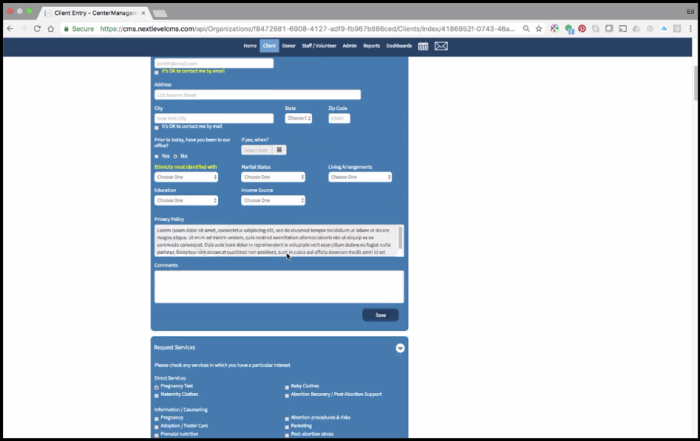How anti-abortion activism is exploiting data

Photo by David Werbrouck on Unsplash
This is an ongoing series about the ways in which those searching for abortion information and procedures are being traced and tracked online. This work is part of a broader programme of work aimed at safeguarding the dignity of people by challenging current power dynamics, and redefining our relationship with governments, companies, and within our own communities. As an enabling right, privacy plays an important role in supporting the exercise of reproductive rights as recognised in international human rights law.
Intrusive data collection software and digital marketing systems are being developed and promulgated around the world by powerful and politically connected US-based anti-abortion organisations.
As anti-abortion organisations wake up to the utility of personal data to tailor and target messages online, data-intensive technologies and tools are being specifically developed for crisis pregnancy centres – which reportedly sometimes masquerade as licensed medical facilities and which have been criticised for providing those seeking medical help with false and misleading information.
There have been a number of recent examples of data being used to target people seeking information about abortion online – through advertising, misleading information, and misleading websites. In this context, as more and more data is collected by and made available to anti-abortion organisations, understanding how they and their political allies are aiming to use this information is crucial.
Heartbeat International is an international anti-abortion organisation that is particularly focused on using data to understand the needs and trends of anti-abortion centres. The organisation powers a data-intensive content management system that was developed specifically to remove data silos between anti-abortion centres globally.
“While in Washington, Heartbeat was invited to attend an intimate Pro-Life Advocate roundtable with Vice President Mike Pence. Sitting next to the Vice President of the United States of America, Heartbeat President Jor-El Godsey had the opportunity to share the… life-changing work of pregnancy help organisations.”
This quote was featured in Heartbeat International’s 2018 annual report. It illustrates Heartbeat’s close proximity to US political power. Such political allies may limit the likelihood that the development and use of data-intensive systems by centres will be regulated or challenged.
The ability to exercise reproductive rights, as recognised in international human rights law, depends in part on the political will of those in power in a particular country. As an enabling right, privacy plays an important role in supporting the exercise of reproductive rights. In countries where there is opposition to reproductive rights as well as limited data privacy laws, there is a significant risk of people’s data being exploited in an attempt to restrain reproductive rights.
Heartbeat International
“We believe we’re better together, and so is our data. Knowing the real-time trends of the larger life-affirming community is a crucial, yet untapped gateway to breakthrough success on the local level—until now, that is.”
Heartbeat International is an important player in the global anti-abortion scene. Self-described as “the largest worldwide network of pregnancy help organizations”, Heartbeat International runs a network of “over 2,700 affiliated pregnancy help organizations worldwide and affiliated pregnancy help organizations in more than 60 countries” – it says it has “700 affiliate locations outside the US”.
Becoming a an affiliate provides discounted access to Heartbeat’s anti-abortion web design and digital marketing service, Extend Web Services, as well as its helpline, Option Line. Heartbeat markets to its network of affiliates its content management system called Next Level, which “harnesses the power of big data” and gives anti-abortion centres “the ability to enter and access information anywhere at any time”.
Heartbeat also offers its training courses at a discount to its affiliates, which include courses such as “8 steps for advancing your social media strategy”, “7 keys to Google Ad Grants”, “search engine marketing 101”, and “online marketing”.
Extend Web Services
“She’s looking online. Be there for her.”
This is the message displayed on the homepage of Extend Web Services’ website, promoted by Heartbeat International, which builds campaign tools and websites for anti-choice pregnancy centres.
In some cases, those searching for abortion information or procedures are in desperate circumstances. Heartbeat International-supported Extend Web Services, is developing websites that attract “abortion-minded” people, make them “feel comfortable”, and “effectively reach women in crisis online”. This can become problematic when a person searching for abortion information online is targeted with misleading information. For example, a person may be delayed in obtaining abortion care if they see an ad for what they think is a medical clinic but is in reality a crisis pregnancy centre.
Extend Web Services was developed to provide anti-abortion crisis pregnancy centres and other related organisations with websites, campaign optimisation tools, local search tools, and design services. The company’s mission in part states: “We are experts at making sure your website is attracting the abortion-minded client and representing your center in a way that will make your clients feel comfortable with the service they will receive.”
The services of Extend are being used by a variety (for example here, here, here, here, here, here, here) of anti-choice pregnancy centres inside the US and globally, such as in Malta, where abortion remains illegal.
Extend’s out-of-the-box website templates suggest guarded anti-abortion language for the website homepage, navigation, and elsewhere. In a response to a request to comment from PI, an Extend representative told PI [emphasis added] that the company restricts the ability for their clients to change the language used on “5 medical pages” which are “provided and managed by Extend Web Services/Heartbeat International”. These pages, the representative told PI, include: “Abortion Information/Education”, “Abortion Recovery”, “Sexual Health”, “Pregnancy”, and “Emergency Contraception”. The representative further told PI “All other pages of the website are able to be fully customized by the client in terms of content, imagery, etc. They are able to request one of the 5 pages listed above to be completely removed from the site if they don't like the content. They can provide their own content to fully replace one of those pages as well - they just aren't allowed to edit the content on those pages that we provided.”
The closeness of Extend’s relationship to Heartbeat International, which isn’t immediately made clear on their respective websites, is confirmed in the above exchange.
Extend also offers assistance to anti-abortion centres for obtaining Google’s AdWords Grant for Non-Profits. Earlier in 2019 it was reported that another anti-choice network had been given $150,000 worth of free ads by Google. Google has been criticised for allowing anti-choice organisations to run misleading advertisements, in violation of Google’s policies.
Extend’s website design and other tools show a learned understanding of how to communicate to those seeking abortion information online. The increased collection of data from those working at crisis pregnancy centres about people seeking abortion information or procedures could be incredibly valuable to companies like Extend, in honing their targeting techniques and templates online.
Option Line
Option Line is a website, chat service, and call line that was developed by Heartbeat International for deployment on anti-abortion websites. Extend Web Services includes Option Line’s chat service, which uses LiveChat software to operate, on the website packages they provide by default and it is visible on many of the anti-choice websites provided to centres by Extend.
Source: screenshots from two crisis pregnancy centre websites.
Prior to beginning a chat, the Option Line chat interface requires visitors to enter their name, demographic information, location information, as well as if someone is considering an abortion. Only after submitting this personal information does the chat begin. It is unclear where the data submitted prior to the chat beginning, as well as the data generated during the chat ends up, and who has access to it. When this was raised by PI a representative from Extend responded [emphasis added] “All information is safe and secure within Heartbeat International and only Heartbeat International has access to this information” but it is still not clear who specifically at Heartbeat has access to this data, if this also includes Heartbeat subsidiary programmes such as Next Level Content Management System, how the data is used, stored, and for how long.
This data has the potential to include medical and health data, which is subject to heightened privacy laws in the US and the EU, as well as other countries around the world. Option Line’s terms of use state that “all remarks” sent through the website – other than information directly requested – can be used by Option Line “for any and all purposes” that it believes “to be appropriate to the mission and vision of Option Line”.
Source: Option Line website
While it is unclear how the data is used, and by whom, what is said in the chat could be very valuable to Heartbeat and its affiliate anti-choice organisations. For example, representatives from local anti-abortion clinics could be told of the name of someone who is “abortion-minded”, and attempt to reach them by other methods.
“The data your organisation collects needs to work not just for you, but for the rest of the pregnancy help movement.” Source: Next Level website
Next Level Content Management Solution
It may not be clear to those visiting crisis pregnancy centres how the health and medical information collected from them will be used and shared. Especially for those desperate for medical help, those in areas with a limited number of abortion clinics, or those visiting a clinic where their first language is not spoken, people are likely to provide whatever information is asked of them during a visit without question.
In 2017, Heartbeat International unveiled the Next Level Content Management Solution (CMS). The system appears to unify what questions people are asked when seeking a centre’s help, and to centralise the information that visitors to anti-abortion centres are asked to provide during their visit. The types of information that is collected, which is visible in a promotional video on Next Level’s website, includes name, address, email address, ethnicity, marital status, living arrangement, education, income source, alcohol, cigarette, and drug intake, medications and medical history, sexual transmitted disease history, name of the referring person/organisation, pregnancy symptoms, pregnancy history, medical testing information, and eventually even ultrasound photos.
Next Level markets the software as a system that “[m]akes seamless data collection possible for pregnancy centres”. They say that it “allows information to move from the receptionist to the client, from the client to the coach or mentor, and from the mentor to the nurse’s office”, and visualise the system as data streams flowing from individual pregnancy centres to a centralised cloud.
Source: Next Level website
Next Level’s privacy policy states that the company “may share such information with Next Level affiliates, partners, vendors, or contract organizations, or as legally necessary”, but provides no further information about how people’s personal information is shared or analysed within Heartbeat’s network of 2,700 affiliate organisations and partners, or outside of this network.
It’s also unclear to what degree Next Level personnel have access to centre client information. The company’s FAQ states that the company does have administrator-level access to client information but that “[a]ccess is granted only to a limited number of Next Level personnel as is necessary to perform the functions of the Next Level Software”. It provides no clarity as to what “a limited number” means or what it considered “necessary to perform the functions”.
In an email to PI, Heartbeat President Jor-El Godsey said [emphasis added] that “All data of a personal identifying nature captured by Heartbeat International and its subsidiary programs is protected and kept confidential as a matter of our continuing commitment to confidentiality in accordance with applicable laws of the U.S. and relevant nations. To improve our services and understand the changing needs of those we seek to serve Heartbeat uses only aggregated and de-identified information to formulate and analyze trends.”
It is unclear what Heartbeat’s subsidiary programmes are – these could include Next Level, Extend, and Option Line – as well as what they have access to. In 2018 Heartbeat reported that its affiliates had served 1.5 million clients. It’s also unclear how and who “de-identifies” information provided to Heartbeat, and at what point such de-identification occurs. Next Level, as a part of Heartbeat International, may have access to vast amounts of identifiable information and therefore understanding how such de-identification occurs in crucial.
In addition to the content management system, Next Level also provides centres with a mobile phone application, which gives them access to client information outside the office – specifically saying “Because God often leads you to do “pro-life work” when we’re away from the office, you need a tool that travels with you. Next Level’s native mobility turns an on-the-fly conversation into an open client file, to help you follow up on these divine, “unexpected” appointments”.
Next Level also provides a client-side version of the app, that allows clients to “set and change appointments, look at ultrasounds pictures” and also “click in or text her mentor, and talk to someone at Option Line very quickly”. The Next Level website uses similar language to promote the client app, saying “send her home with an app that includes everything from her ultrasound image and baby’s heartbeat to her proof of pregnancy, and vitally connects her to your organization moving forward”.
PI was unable to test what information is generated by the Next Level mobile application, which requires a centre-given username and password.
Phone apps are notorious, however, for collecting data about users’ activity that most people would not expect. App permissions can reveal information about a user’s live location, access to photos, contacts, and much more.
Included on the Next Level intake form shown in the promotional video is an “authorisation to release records” disclaimer which states: “In signing this release, I waive any privilege or confidentiality rights that I may have with respect to the specific disclosure authorised herein. I also agree to release Heartbeat International from any and all liability relating to any disclosure made in accordance with this authorisation”.
Source: Screen grab from video available on Next Level’s website shows authorisation to release records field.
Source: Screen grab from video available on Next Level’s website shows collection of whether a person is “abortion-minded”.
Source: Screen grab from video available on Next Level’s website shows other data collected – including “Living Arrangements”.
In an email to PI, Heartbeat Director Jor-El Godsey concluded [emphases added], “Actually, our primary focus is to support and promote alternatives to abortion. It is in service to that effort that data becomes a tool, among others, to help strengthen our services and nurture our network of affiliated locations.”
Looking forward
Privacy harms are a time-shifted risk. What at one point in our life may seem to be acceptable and harmless information we’re asked to provide, may in the future be used against us in ways we cannot expect or prepare for. It is unclear how information collected from those visiting crisis pregnancy centres is combined, analysed, and shared with other centres, organisations, and networks. People visiting crisis pregnancy centres – intentionally or not – are left unaware of how their personal information is being accessed, analysed, stored, and shared. As people continue their lives after visiting a centre, it remains unclear how the information they provided during their visit will continue to exist and be used.
Our online-activity – increasingly blurred with our offline-activity – is being tracked by companies, advertisers, and others, who aim to collect information about our thoughts, fears, desires, and insecurities, and use these drivers to profile and target us. Some of these companies are already using GPS locations to target advertisements at “abortion-minded women” based on their proximity to abortion clinics. Companies are tailoring online ads to influence abortion legislation. It is being reported that anti-abortion organisations are pushing misinformation through advertising platforms.
Organisations like Heartbeat International recognise the importance of out-of-the-box anti-abortion websites and templates. They also appear to understand the power of collecting and centralising data. Extend Web Services, Heartbeat, Next Level, and Option Line’s privacy policies and terms of use remain vague in detail as to the extent to which data collected from individual Heartbeat affiliate crisis pregnancy centres is shared within or external to the larger network. This data could be highly valuable in understanding what messaging and which tactics are most effective to furthering Heartbeat’s mission – as well as shaping the larger movement’s political direction.
The near total lack of transparency around how data is being used and shared by anti-abortion networks such as Heartbeat International is troubling. Such data could be used in ways that those who provide it may not have anticipated or approve of, including to potentially undermine their reproductive rights. Privacy and strong data protection are therefore crucial, in many ways, to ensuring people are able to exercise their reproductive rights. It is important that light continues to shine on the technologies being developed to trace and track those seeking medical help online.
